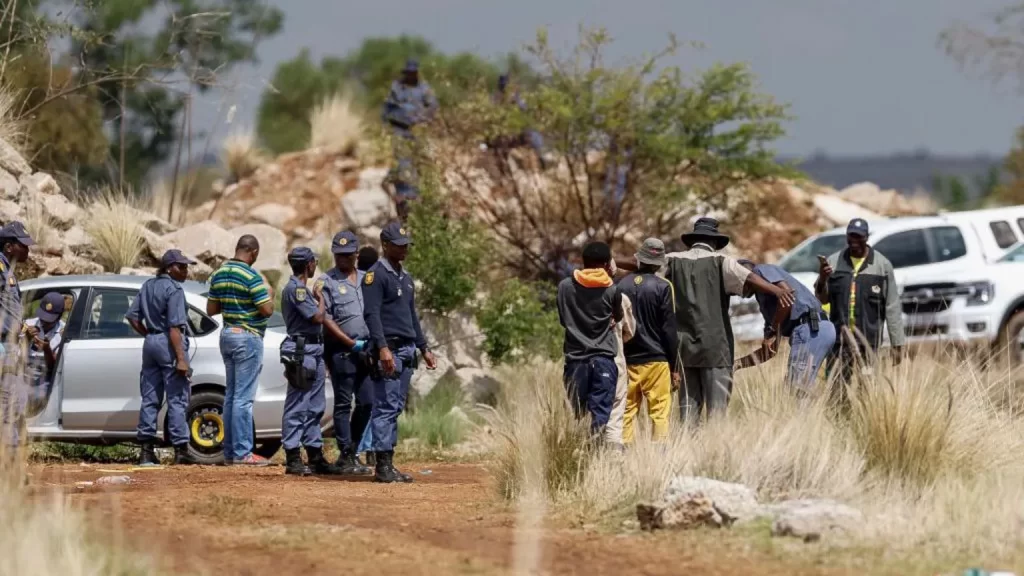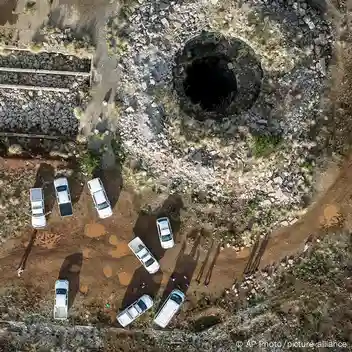An estimated 4,000 illegal gold miners remain trapped underground in South Africa as authorities cut off food and water supplies in an aggressive strategy to “smoke them out,” sparking a humanitarian crisis and debate over the government’s hardline approach.

The miners, known locally as “zama zamas” (Zulu for “take a chance”), have been hiding in a mineshaft in Stilfontein, North West province, for approximately a month. Many are undocumented migrants from neighboring Lesotho and Mozambique who fear deportation if they surface.
“We are going to smoke them out. They will come out. We are not sending help to criminals. Criminals are not to be helped – they are to be persecuted,” Minister in the Presidency Khumbudzo Ntshavheni declared Wednesday, drawing both praise and criticism from South Africans.
The situation turned grim Thursday when community leader Thembile Botman reported volunteers retrieved a decomposing body from the mine using ropes and seat belts. “The stench of decomposing bodies has left the volunteers traumatized,” he told the BBC.
Busi Thabane from the Benchmarks Foundation, a corporate watchdog organization, characterized the situation as beyond illegal mining. “It is no longer about illegal miners – this is a humanitarian crisis,” she said, noting that many miners are linked to criminal syndicates or recruited into them.
While authorities maintain their blockade, they have temporarily allowed local residents to lower some supplies by rope. Communities have established basic communication with the miners through written notes, as police and military forces guard exits as part of the “Vala Umgodi” (Close the Hole) operation.
The standoff has yielded some results, with 1,000 miners surrendering in the past week. Five more emerged Wednesday, requiring immediate medical attention before being taken into custody.

Local resident Emily Photsoa highlighted the human cost of the crisis: “Those people must come out because we have brothers there, we have sons there, the fathers of our kids are there, our children are struggling,” she told AFP.
The South African Human Rights Commission announced an investigation into the police’s denial of food and water to the miners, citing concerns about the right to life. The crisis exemplifies South Africa’s broader struggle with illegal mining, which costs the government hundreds of millions in lost revenue annually.
Since December, authorities have seized nearly 400 high-caliber firearms, thousands of rounds of ammunition, uncut diamonds, and cash in operations targeting illegal mining operations. The practice has flourished as formal mining operations have closed and unemployment has risen, pushing desperate workers and migrants underground.
Many miners spend months below surface in makeshift underground economies, complete with vendors selling food, cigarettes, and cooked meals. The practice, while illegal, has become a vital economic lifeline for many families in the region’s impoverished communities.
The government’s aggressive stance has divided public opinion. While some praise the decisive action against illegal mining, others condemn it as inhumane. “They are criminals but they have rights too,” one social media user noted, reflecting the moral complexity of the crisis.



